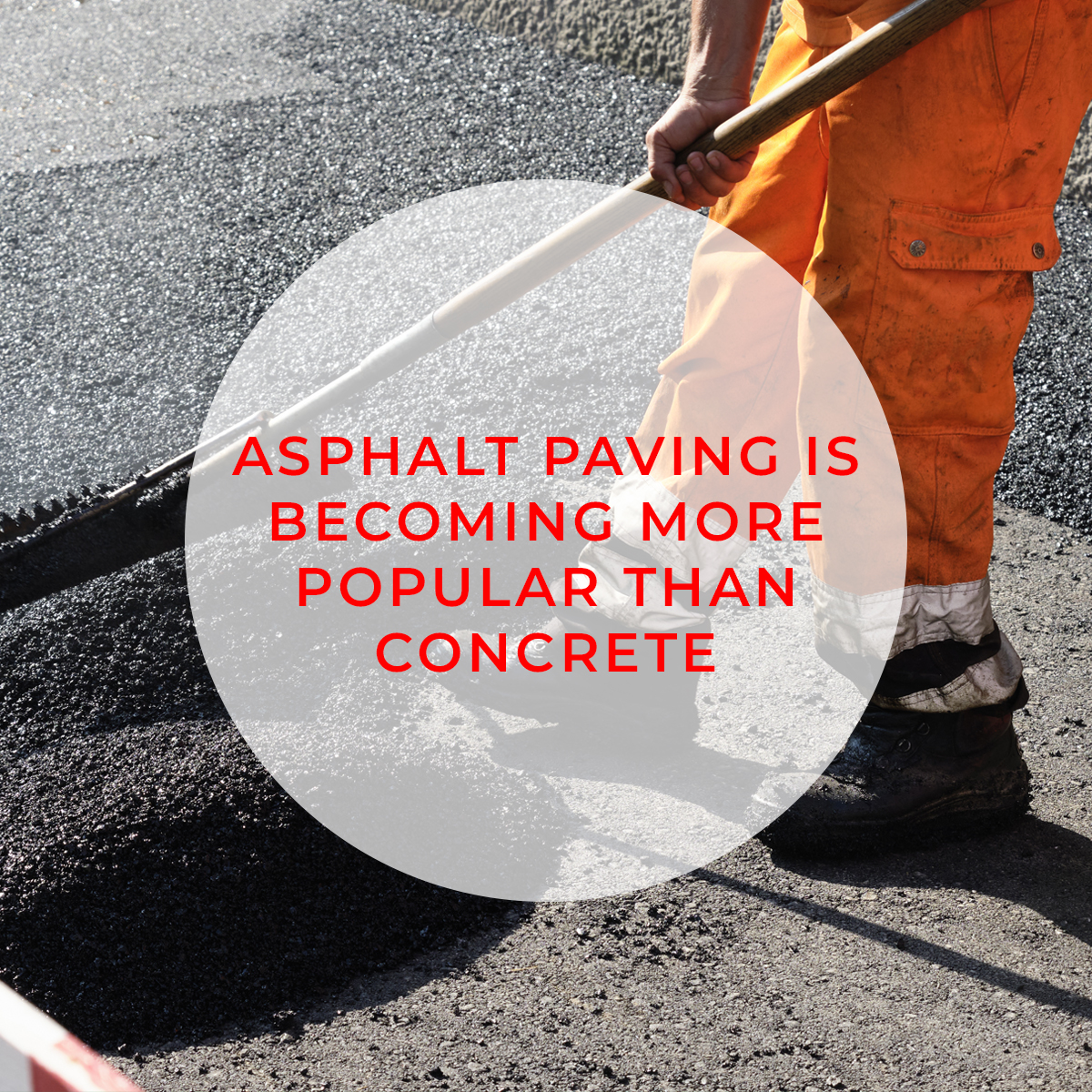Why Asphalt Pavement Is Becoming More Popular Than Concrete
Concrete was one of the most popular choices for paving driveways and other road works. Now, Asphalt pavement has become the most preferred choice, and the major reason for this is the eco-friendly characteristics of Asphalt. If you are planning on renovating your property, renovating your driveway should also be part of your project.
Having a new driveway on your property is going to refresh the overall look and aesthetics of the home. A renovation work requires you to make a lot of research and make a solid financial commitment. Using the best paving material should help you achieve the best results. Reduced maintenance costs, durability, and minimum upfront costs are some of the major benefits.
Asphalt pavement is by far the perfect material one could use to achieve most of the above-discussed benefits. Asphalt pavement is considered to be the gold standard in the commercial construction business. Compared to concrete, asphalt paving is more resilient, durable, sturdy, solid, and is one of the top-performing construction materials of all.
Most of the leading building contractors in North America prefer asphalt over concrete and we shall discuss further below some of the major factors that have resulted in them making this choice.
Drawbacks of Concrete Paving
Concrete material had and is still being used in paving all across the country. It does offer multiple benefits but with the introduction of asphalt in paving, some of the drawbacks of concrete had come to light.
Concrete material mixing is key because improper mixing or concentration of concrete could result in over-dilution. If the pavement is constructed using this over-diluted mixture, it is only going to weaken the overall construction. Such an unstable concrete mixture is found to be volatile and affects the stability of the construction. Even minor pressure and temperature changes could cause the concrete pavement to crack or weaken, which is something you wouldn’t want.
Another major drawback of concrete paving is the occurrence of air bubbles. Asphalt paving is not susceptible to any such drawback. Concrete paving is prone to crumble and cracking and this only shoots up the service and maintenance costs in the long run.
Concrete paving construction also requires intricate design and construction works such as groove joints and slab structures. Both the above construction techniques are mandatory for enhancing stability. Because of these, the costs incurred in the construction and maintenance of concrete paving are much higher compared to asphalt.
The prevailing climatic conditions at the time of concrete paving construction also play a crucial role in determining the quality and stability of the paving. When the climate is sunny or windy at the time of paving construction, then the foundation of the concrete paving might end up weaker because the top layer of the paving would cure much faster than the bottom layer, resulting in a weaker foundation. Improper curing or drying of all the layers of the concrete paving would result in surface cracking.
Positives of Asphalt Pavement
Asphalt paving is considered to be the most beneficial and attractive paving material choice. Let us discuss each of these benefits in detail further below:
- Extreme Weather Resistance – Asphalt can withstand some extreme weather conditions. Asphalt is known to possess extreme hot and cold weather resistance. This means the pavement will stay durable and strong across all the weather conditions. The ability of asphalt to withstand extreme and heavy weather conditions such as rain, snow, hail, ice, etc. is a major advantage of asphalt. Although minor cracking can be seen due to contraction and expansion, it is nothing major to cause concern.
- Cost-effective – Compared to the construction and maintenance costs of concrete, asphalt requires very little maintenance. It is found to be the most economical paving construction material of all. The occurrence of repairs is also quite minimal so the long-term maintenance costs are also going to be lower. The installation cost of asphalt per square foot is also very less compared to concrete. Asphalt repairs have lesser intervals compared to concrete repairs.
- Eco-friendly – Asphalt material is recyclable, reusable, and eco-friendly. The eco-friendly property of asphalt also helps reduce landfill wastes. Asphalt is a naturally occurring product and can be broken down into multiple substitutes and reused for different purposes. Since it is a naturally occurring material, it does not contaminate the surrounding waterways, and human and animal habitats. Almost 95% of asphalt is globally reused by recycling.
- Versatile material – Asphalt is one of the primary raw materials in the construction industry. It can be used for a wide range of construction purposes such as parking lots, highways, roadways, streets, etc. Asphalt is mainly used as a binding agent in paved roadways.
- Low maintenance costs – We have already discussed the lower maintenance costs associated with asphalt earlier. By implementing periodic maintenance of asphalt by using techniques such as seal coating, the lifespan and quality of the asphalt pavement can be extended by almost 30 years.
Verdict
Asphalt is the most preferred raw material for the construction of pavement. Compared to concrete, pavements constructed using asphalt seem to deliver a lot of benefits to the property owners, both in the short and long term. It is also one of the most eco-friendly naturally available raw materials. The overwhelming advantage offered by asphalt makes it the most preferred and popular option over concrete.

